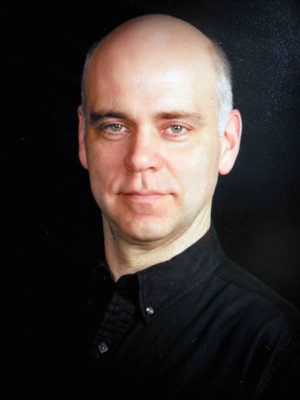 Further Reflections are instructor-led, multi-session virtual courses held on Zoom for small discussion groups.
Further Reflections are instructor-led, multi-session virtual courses held on Zoom for small discussion groups.
Register $75.00 for this 3-part series running June 8, 15 & 22: 7:00-8:30 pm ET
How is your subjective experience generated by the billions of neurons embedded in the gel in your head? The deep mystery of consciousness prompts quasi-religious ideas even among atheists. Some prominent thinkers deny that science can ever explain why we feel the way we do. Although scientists do not have a full explanation for consciousness, neuroscience studies over the past two decades have shed some empirical light on these issues.
The first part of this class will explore some of the most prominent ideas about consciousness that have been advanced by humanists and by scientists. Then we will look at recent scientific studies using measurements of brain activity during brief presentations of subliminal stimuli that may or may not be consciously perceived. This will then lead into a discussion of the leading “global workspace” model for consciousness.
In the second class we will examine evidence about brain activity in people in various stages of consciousness, leading to a discussion of networks, complexity and information, which form the major competing theory of consciousness. We’ll ask what’s known scientificaly about ‘higher states’ of consciousness.
In the third class we will discuss the inner dialogue that is the hallmark of human subjectivity. The patterns of your inner thoughts, as measured in an MRI scanner, are as individually recognizable as a fingerprint. Then we will examine evidence on whether animals or artificial intelligences are conscious in some degree.
Throughout the class, we’ll be considering the implications for humanism of unfolding discoveries about consciousness.
 Dr. Mark Reimers is a quantitative neuroscientist at Michigan State University, whose research aims to elucidate how dynamic brain activities give rise to thoughts and feelings in people and animals. Dr. Reimers has worked at the US National Institutes of Health, the Karolinska Institute in Stockholm, at the Virginia Institute for Psychiatric and Behavioral Genetics and at Michigan State University. His broader aim is to ground our understanding of feeling and thought in the facts of biology.
Dr. Mark Reimers is a quantitative neuroscientist at Michigan State University, whose research aims to elucidate how dynamic brain activities give rise to thoughts and feelings in people and animals. Dr. Reimers has worked at the US National Institutes of Health, the Karolinska Institute in Stockholm, at the Virginia Institute for Psychiatric and Behavioral Genetics and at Michigan State University. His broader aim is to ground our understanding of feeling and thought in the facts of biology.
Dr. Reimers was the leader of the Richmond Humanists in Virginia for five years, and now leads the UU Forum in Lansing, and speaks frequently at humanist and science outreach events in Michigan.

